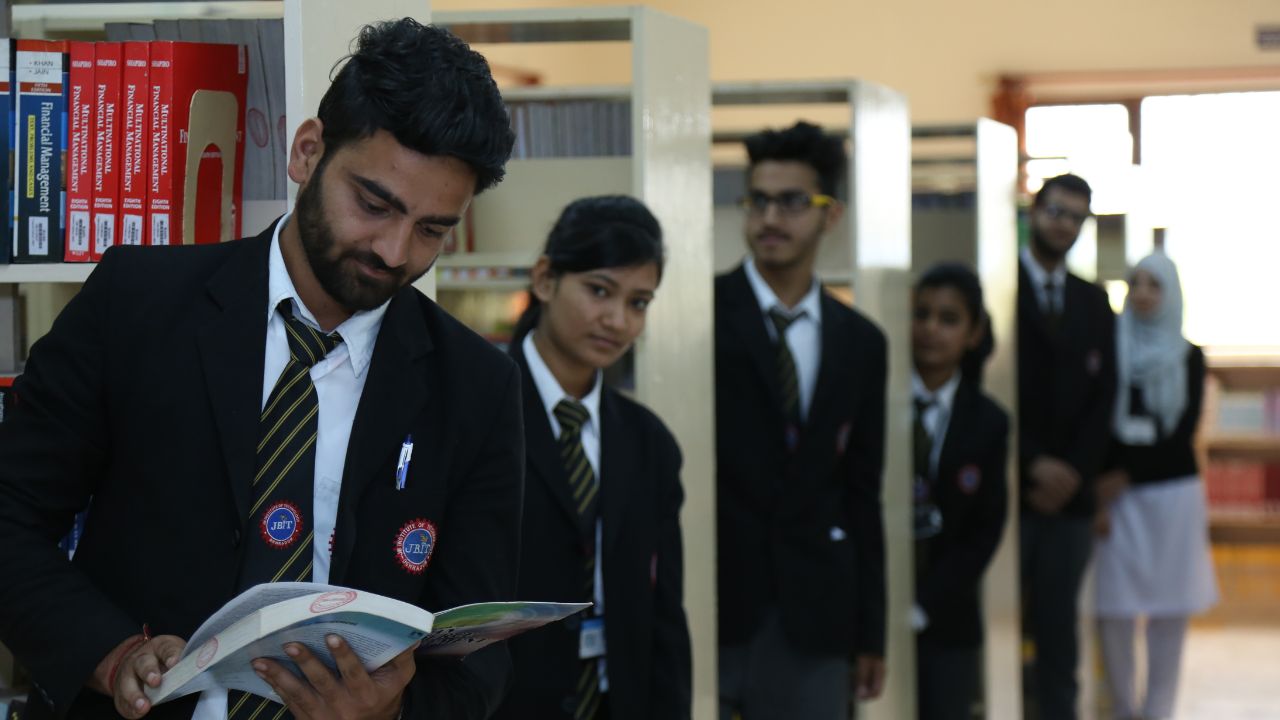Mechanical ENGINEERING
A Mechanical Department within a college is a fundamental component of the institution’s engineering faculty. It is responsible for providing education, conducting research, and fostering innovation in the field of mechanical engineering. Here’s an overview of what you can typically expect to find in a Mechanical Department at a college:
The department is staffed with experienced and knowledgeable faculty members who are experts in various subfields of mechanical engineering. They are responsible for teaching courses, mentoring students, and conducting research.
We have student organizations related to mechanical engineering. These student chapters of professional societies (e.g., SME – Society of Mechanical Engineers) offer opportunities for networking, organizing events, and participating in design competitions.
Collaboration with industry partners is part of the pedagogy, these partnerships lead to internships, cooperative education programs, research projects, and recruitment opportunities for students. It helps bridge the gap between academic theory and real-world engineering challenges.
In the final years of their undergraduate studies, our students often engage in capstone projects. These projects involve designing, building, and testing a mechanical system or device, allowing students to apply their knowledge and problem-solving skills to real-world problems.
We also provide resources and support for students to enhance their professional development, which includes assistance with resume building, interview preparation, and job placement.
Mechanical engineering is an interdisciplinary field. The department may collaborate with other engineering departments (such as electrical engineering or civil engineering) and non-engineering departments (such as materials science or computer science) to address complex engineering challenges.
After completing a Bachelor of Technology (B.Tech) in Mechanical Engineering, you’ll have a wide range of job opportunities across various industries. Here are some common job profiles that you can consider:
Mechanical Engineer, Design Engineer, Manufacturing Engineer, Quality Control Engineer, Project Engineer, Maintenance Engineer, Energy Engineer, Automotive Engineer, Aerospace Engineer, HVAC Engineer, Biomedical Engineer, Materials Engineer, Consulting Engineer, Sales Engineer, Research and Development (R&D) Engineer.

Vision
To be a department in pursuit of excellence in Mechanical Engineering education, Research & Innovation
MISSION
1. To impart quality education through effective teaching learning.
2.To develop the laboratories of national & International standards.
3.To develop the Professionalism in mechanical engineering students.
 Dear Students, Hearty welcome to the Department of Mechanical Engineering, JB Institute of Technology, Dehradun. The department runs an undergraduate program in Mechanical Engineering, which is a wonderful and diverse subject in the engineering domain of science and technology. We think it can be best summed up with a slogan from our professional body, ‘Nothing moves without Mechanical Engineers’. The department has well qualified and dedicated faculty that strives to impart quality education with best knowledge and training to students in latest technologies in respect of Mechanical Engineering. The objective of the department is to prepare students for a successful career in Industry, Research and Academics to meet the present need of growing technology. Our efforts are to develop the ability among students to synthesize data and technical concepts for application to product design. The department provides an opportunity for students to work as a team member or as a project leader on multidisciplinary projects. It also provides them for a sound foundation in the scientific and engineering fundamentals necessary to formulate, solve and analyse engineering problems and to prepare them for higher studies as well as research. We promote awareness among students for professional ethics and codes for life-long learning. For the overall development of the students Department of Mechanical engineering is associated with Memberships of national/international professional bodies such as SAEINDIA, The department has also formulated a Mechnokriti Club that in collaboration with SAE India, Material Science Club and many more conducts various helpful to the students to gain knowledge and interact with students and staff of other colleges/universities as well as Industry Engineers.
Dear Students, Hearty welcome to the Department of Mechanical Engineering, JB Institute of Technology, Dehradun. The department runs an undergraduate program in Mechanical Engineering, which is a wonderful and diverse subject in the engineering domain of science and technology. We think it can be best summed up with a slogan from our professional body, ‘Nothing moves without Mechanical Engineers’. The department has well qualified and dedicated faculty that strives to impart quality education with best knowledge and training to students in latest technologies in respect of Mechanical Engineering. The objective of the department is to prepare students for a successful career in Industry, Research and Academics to meet the present need of growing technology. Our efforts are to develop the ability among students to synthesize data and technical concepts for application to product design. The department provides an opportunity for students to work as a team member or as a project leader on multidisciplinary projects. It also provides them for a sound foundation in the scientific and engineering fundamentals necessary to formulate, solve and analyse engineering problems and to prepare them for higher studies as well as research. We promote awareness among students for professional ethics and codes for life-long learning. For the overall development of the students Department of Mechanical engineering is associated with Memberships of national/international professional bodies such as SAEINDIA, The department has also formulated a Mechnokriti Club that in collaboration with SAE India, Material Science Club and many more conducts various helpful to the students to gain knowledge and interact with students and staff of other colleges/universities as well as Industry Engineers.
With Best Wishes,
Mr. Punit Kumar
Associate Professor
Head -Department of Mechanical,
JB Institute of Technology
Dehradun
Mail:hod.me@jbitdoon.edu.in
Mobile : +919759091135
| S.No. | Salutation | Name | Father’s Name | Name of the Department | Designation |
|---|---|---|---|---|---|
| 1. | Mr. | Ravi Shankar | Mr. Paltoo Ram | Mechanical Engineering | Associate Professor |
| 2. | Mr. | Punit Kumar | Mr. Raj Kumar | Mechanical Engineering | Associate Professor |
| 3. | Mr. | Sumit Kumar | Mr. Baljeet Singh | Mechanical Engineering | Associate Professor |
| 4. | Mr. | Manik Pal Shah | Mr. Shanti Lal | Mechanical Engineering | Associate Professor |
| 5. | Mr. | Jitendra Kumar | Mr. Virendra Kumar | Mechanical Engineering | Assistant Professor |
| 6. | Mr. | Ujjwal Kumar | Mr. Anuj Kumar | Mechanical Engineering | Assistant Professor |
| 7. | Mr. | Pawan Singh Chauhan | Mr. Prem Singh Chauhan | Mechanical Engineering | Assistant Professor |
| 8. | Dr. | Pitamber Kumar Chaudhary | Mr. Dayanath Chaudhary | Mechanical Engineering | Professor |
| 9. | Mr. | Saifullah Zaphar | Md. Zubairuddin | Mechanical Engineering | Assistant Professor |
| 10. | Dr. | Bharat V.P.S. Rawat | Late. Sh. Indra Singh Rawat | Mechanical Engineering | Associate Professor |
| 11. | Dr. | Subhash Chandra Sarkar | Late. Sh. K.C. Sarkar | Mechanical Engineering | Professor |
| 12. | Mr. | Vaibhav Gour | Mr. Rajpal Sharma | Mechanical Engineering | Assistant Professor |
| 13. | Mr. | Ankit Kumar | Mr. Raj Kumar | Mechanical Engineering | Assistant Professor |
| 14. | Dr. | Pradeep Kothiyal | Mr. T.K. Kothiyal | Mechanical Engineering | Associate Professor |
| 15. | Mr. | Faeem Ahmad | Mr. Riyazul Aslam | Mechanical Engineering | Assistant Professor |
Mechanical Syllabus
| S.NO. | NAME | FILE |
|---|---|---|
| SYLLABUS 2022 | ||
| 1 | B.Tech First Year | View. |
| 2 | B.Tech 2ND TO 4TH YEAR SPECILIZATION IN AI & ML | View. |
| 3 | B.Tech 2ND TO 4TH YEAR SPECILIZATION IN ANDROID | View. |
| 4 | B.Tech 2ND TO 4TH YEAR SPECILIZATION IN AR & VR | View. |
| 5 | B.Tech 2ND TO 4TH SPECILIZATION IN Cyber Security | View. |
| 6 | B.Tech 2ND TO 4TH SPECILIZATION IN DATA SCIENCE | View. |
| 7 | B.Tech 2ND TO 4TH YEAR SPECILIZATION IN ENERGY ENGINEERING | View. |
| 8 | B.Tech 2ND TO 4TH YEAR SPECILIZATION IN IOT | View. |
| 9 | B.Tech 2ND TO 4TH YEAR SPECILIZATION IN ROBOTICS ENGINEERING | View. |
| 10 | SYLLABUS 2020-21 | View. |
| 11 | SYLLABUS 2019-20 | View. |
| 12 | SYLLABUS 2018 | VIEW |
Program Specific Outcomes and Program Educational Objectives
 Engineering knowledge: Apply the knowledge of mathematics, science, engineering fundamentals, and an engineering specialisation for the solution of complex engineering problems.
Engineering knowledge: Apply the knowledge of mathematics, science, engineering fundamentals, and an engineering specialisation for the solution of complex engineering problems.
 Problem analysis: Identify, formulate, research literature, and analyse complex engineering problems reaching substantiated conclusions using first principles of mathematics, natural sciences, and engineering sciences.
Problem analysis: Identify, formulate, research literature, and analyse complex engineering problems reaching substantiated conclusions using first principles of mathematics, natural sciences, and engineering sciences.
 Design/Development of Solutions: Design solutions for complex engineering problems and design system components or processes that meet the specified needs with appropriate consideration for public health and safety, and cultural, societal, and environmental considerations.
Design/Development of Solutions: Design solutions for complex engineering problems and design system components or processes that meet the specified needs with appropriate consideration for public health and safety, and cultural, societal, and environmental considerations.
 Conduct investigations of complex problems:Use research-based knowledge and research methods including design of experiments, analysis and interpretation of data, and synthesis of the information to provide valid conclusions.
Conduct investigations of complex problems:Use research-based knowledge and research methods including design of experiments, analysis and interpretation of data, and synthesis of the information to provide valid conclusions.
 Modern tool usage: Create, select, and apply appropriate techniques, resources, and modern engineering and IT tools including prediction and modelling to complex engineering activities with an understanding of the limitations.
Modern tool usage: Create, select, and apply appropriate techniques, resources, and modern engineering and IT tools including prediction and modelling to complex engineering activities with an understanding of the limitations.
 The engineer and society: Apply reasoning informed by the contextual knowledge to assess societal, health, safety, legal, and cultural issues and the consequent responsibilities relevant to the professional engineering practice.
The engineer and society: Apply reasoning informed by the contextual knowledge to assess societal, health, safety, legal, and cultural issues and the consequent responsibilities relevant to the professional engineering practice.
 Environment and sustainability: Understand the impact of the professional engineering solutions in societal and environmental contexts, and demonstrate the knowledge of, and the need for sustainable development.
Environment and sustainability: Understand the impact of the professional engineering solutions in societal and environmental contexts, and demonstrate the knowledge of, and the need for sustainable development.
 Ethics: Apply ethical principles and commit to professional ethics and responsibilities and norms of the engineering practice
Ethics: Apply ethical principles and commit to professional ethics and responsibilities and norms of the engineering practice
 Individual and team work: Function effectively as an individual, and as a member or leader in diverse teams, and in multidisciplinary settings.
Individual and team work: Function effectively as an individual, and as a member or leader in diverse teams, and in multidisciplinary settings.
 Communication: Communicate effectively on complex engineering activities with the engineering community and with the society at large, such as being able to comprehend and write effective reports and design documentation, make effective presentations, and give and receive clear instructions
Communication: Communicate effectively on complex engineering activities with the engineering community and with the society at large, such as being able to comprehend and write effective reports and design documentation, make effective presentations, and give and receive clear instructions
 Project management and finance: Demonstrate knowledge and understanding of the engineering and management principles and apply these to one’s work, as a member and leader in a team, to manage projects and in multidisciplinary environments.
Project management and finance: Demonstrate knowledge and understanding of the engineering and management principles and apply these to one’s work, as a member and leader in a team, to manage projects and in multidisciplinary environments.
 Life-long learning: Recognise the need for, and have the preparation and ability to engage in independent and life-long learning in the broadest context of technological change.
Life-long learning: Recognise the need for, and have the preparation and ability to engage in independent and life-long learning in the broadest context of technological change.
 Ability to critical analysis and problem-solving skills required in the field of Thermal, Production, and Design engineering (ME domains) for carrying out research activities.
Ability to critical analysis and problem-solving skills required in the field of Thermal, Production, and Design engineering (ME domains) for carrying out research activities.
 Ability to conduct experiments and simulate the real-life situations involved in engineering using computational techniques and instrumentation, and can work independently in research or industrial environments.
Ability to conduct experiments and simulate the real-life situations involved in engineering using computational techniques and instrumentation, and can work independently in research or industrial environments.
 Capability to present the acquired knowledge coherently both in oral and written discourse.
Capability to present the acquired knowledge coherently both in oral and written discourse.
 Capability to compete for the available employment opportunities and solve complex engineering problems related to production, Design, Thermal and allied industries using systematic tool.
Capability to compete for the available employment opportunities and solve complex engineering problems related to production, Design, Thermal and allied industries using systematic tool.
 The graduates will utilize their expertise in Engineering to solve industry’s technological problems.
The graduates will utilize their expertise in Engineering to solve industry’s technological problems.
 Analyse real-life problems, design appropriate system to provide technically sound, economically feasible, and socially acceptable solutions.
Analyse real-life problems, design appropriate system to provide technically sound, economically feasible, and socially acceptable solutions.
 Exhibit professionalism, ethical attitude, communication skills, teamwork in their profession and adapt to current trends by engaging in lifelong learning.
Exhibit professionalism, ethical attitude, communication skills, teamwork in their profession and adapt to current trends by engaging in lifelong learning.
B.Tech. -3rdSem Mechanical Engg. Department
B.Tech. -3rdSem Mechanical Engg. Department B.Tech. -4thSem Mechanical Engg. Department B.Tech. -5thSem Mechanical Engg. Department B.Tech. -6thSem Mechanical Engg. Department B.Tech. -7thSem Mechanical Engg. Department B.Tech. -8thSem Mechanical Engg. Department
S.NO Subject Name Subject Code Course Outcome
1 Advanced Applied Mathematics AHT-006 CO1: Remember the concept of Laplace transform and apply in solving real life problems.
CO2: Apply the concept of Fourier transform to evaluate engineering problems.
CO3: Understand to evaluate roots of algebraic and transcendental equations.
CO4: Solve the problem related interpolation, differentiation, integration and the solution of differential equations.
CO5: Understand the concept of correlation, regression, moments, skewness and kurtosis and curve fitting.
2 Technical Communication (AHT-007) CO1: Enabled to understand the nature and objective of Technical Communication relevant for the work place as Engineers.
CO2: Able to utilize the technical writing for the purposes of Technical Communication and its exposure in various dimensions.
CO3: Able to give imbibe inputs by presentation skills to enhance confidence in face of diverse audience.
CO4: Able to create a vast know-how of the application of the learning to promote their technical
competence.
CO5: Enabling them to evaluate their efficacy as fluent & efficient communicators by learning the voice-dynamics.
3 Engineering Thermodynamics (MET-002) CO1: Apply energy balance to systems and control volumes, in situations involving heat and work
interactions.
CO2: Evaluate changes in thermodynamic properties of pure substances.
CO3: Evaluate the performance of energy conversion devices.
CO4: Differentiate between high grade and low-grade energies.
CO5: Understand the importance of thermodynamic relations.
4 Materials Engineering (MET-003) CO1: Identify crystal structures for various materials and understand the defects in such structures.
CO2: Understand how to tailor material properties of ferrous and non-ferrous alloys.
CO3: Explain detailed interpretation of equilibrium phase diagrams.
CO4: Understand how to quantify mechanical integrity and failure in materials.
CO5: Explain the different metals and alloys.
5 Fluid Mechanics and Fluid Machines (MET-004) CO1: Learn about the application of mass and momentum conservation laws for fluid flows.
CO2: Obtain the velocity and pressure variations in various types of simple flows.
CO3: Understand the importance of dimensional analysis.
CO4: Understand the flow in turbines.
CO5: Analyse the flow in water pumps.
6 Cyber Security (CST-006) CO1: Understand cyber-attacks and types of cybercrimes, and familiarity with cyber forensics
CO2: Realize the importance of cyber security and various forms of cyber-attacks andCountermeasures.
CO3: Get familiar with obscenity and pornography in cyberspace and understand the violation of the Right to privacy on the Internet.
CO4: Appraise cyber laws and how to protect themselves and, ultimately, the entire Internet
Community from such attacks.
CO5: Elucidate the various chapters of the IT Act 2008 power of the Central and State Governments to make rules under IT Act 2008.
7 Universal Human Values (AHT-008) CO1: Are expected to become more aware of themselves, and their surroundings (family, society, nature)
CO2: Would become more responsible in life, and in handling problems with sustainable solutions, while
keeping human relationships and human nature in mind.
CO3: Would have better critical ability.
CO4: Would also become sensitive to their commitment towards what they have understood (human values,human relationship and human society).
CO5: Would be able to apply what they have learnt to their own self in different day-to- day settings in real life,at least a beginning would be made in this direction.
8 Mechanics of Machines (MET-005) CO1: Know the basics of mechanism and perform kinematic analysis.
CO2: Implement the synthesis mechanism.
CO3: Construct various cam profiles based on follower motion and perform kinematic analysis.
CO4: Deduce the number of teeth in gears and torque transmitted in epicyclic gear trains.
CO5: Understand and apply the aspects of friction in clutches and belt rope drives.
9 Applied Thermodynamics (MET-006) CO1: Get a good understanding of various practical power cycles and heat pump cycles.
CO2: Understand the steam generator and its various types, their mountings and accessories, having
Knowledge to calculate the heat balance for steam generators.
CO3:Analyse energy conversion in various thermal devices such as combustors, air coolers, nozzles,
Diffuser, steam turbines and reciprocating compressors.
CO4: Understand the basics of different turbines used for electricity generation.
CO5: Understand the aspect of Jet Propulsion.
10 Strength of Material (MET-007) CO1: Recognize various types of loads applied on machine components of simple geometry and understand the nature of internal stresses that will develop within the components.
CO2: Analyze determinate beams and trusses to determine shear forces, bending moments and axial forces.
CO3: Gain sufficient knowledge in designing shafts to transmit required power and also spring for its maximum energy storage capacities.
CO4: Identify modes of failure in components.
CO5: Identify, formulate and solve engineering problems.
11 Manufacturing Science and Technology – I (MET-008) CO1: Explain the different metal casting processes.
CO2: Explain the different metal forming and sheet metal operations along with the force calculations.
CO3: Explain the theory of rolling and sheet metal work.
CO4: Explain the different unconventional metal forming processes, powder metallurgy andManufacturing of plastic component.
CO5: Explain the jigs and fixture use and metrology.
12 Python Programming (CST-005) CO1: Develop essential programming skills in computer programming concepts like data types.
CO2: Examine Python syntax and semantics and be fluent in the use of Python flow control and functions.
CO3: Illustrate the process of structuring the data using lists, tuples, and dictionaries.
CO4: Demonstrate using built-in functions and operations to navigate the file system.
CO5: Interpret the concepts of modules and user-defined functions in Python.
13 Industrial Engineering & Ergonomics BMET- 501 CO1 Ability to understand productivity and work study.
CO2 Ability to apply plant layouts and understanding the application of material handling equipment.
CO3 An understanding of managerial economics
CO4 Ability to apply the concept of Inventory and supply chain management.
CO5 An understanding of job evaluation and merit rating.
14 Machine Component Design 1 BMET-502 C01 Illustrate the fundamentals of stress analysis, theories of failure and material science in the design of machine components.
CO2 Analyze the principle of solid mechanics to design machine member, under variable loading.
CO3 Analyze the shaft design based on strength, rigidity and design various types of coupling based on application.
CO4 Compare and analyze design parameters of Springs& joints on various loading application.
CO5 Illustrate the different types of Product design & development.
15 Heat and Mass Transfer BMET-503 CO1 Students will be able to mathematically formulate and analyze heat transfer system by conduction mode.
CO2 Students will be able to apply the conduction heat transfer knowledge on fins which are used in various applications.
CO3 Students will be able to apply the knowledge of fluid flow and convection heat transfer to analyze the thermal system.
CO4 Students will be able to analyse radiative heat transfer system.
CO5 Students will be able to perform thermal design of various heat exchangers
16 Internal Combustion Engine BMET-504A CO1 Analyse engine classification Cycle analysis
CO2 Estimate Combustion in SI engine, abnormal combustion and it’s control, combustion.
CO3 Categorize different Fuel injection in CI engines and Fuel injectors.
CO4 Analyse cooling systems, Cooling Towers & Radiators.
CO5 To Analyse Performance parameters and Testing of SI and CI engines.
17 TQM and SQC BMET-505 B CO1 Analyze& Correlate the importance of quality control.
CO2 Compare and analyze the concept of Quality Management.
CO3 To analyze the concept of quality circle.
CO4 Categorize and apply Quality function, decentralization and Theory of control charts.
CO5 Distinguish different types IS0-9000 series and its concept of Quality.
18 Innovation and Entrepreneurship BMET-505 C CO1 Key concepts underpinning entrepreneurship and its application in the recognition and exploitation of product/ service/ process opportunities.
CO2 Key concepts underpinning innovation and the issues associated with developingand sustaining innovation within organizations.
CO3 How to design creative strategies for pursuing, exploiting and further developingnew opportunities.
CO4 Issues associated with securing and managing financial resources in new andestablished organizations.
19 Turbomachinery BMET-601 CO1 Determine the velocity triangles in turbomachinery stages operating at design and off design conditions.
CO2 Apply the affinity laws to pumps such as to determine their off-design behaviour.
CO3 Perform the preliminary design of turbomachines (pumps, compressors, turbines) on a 1- D basis.
CO4 Recognize relations between choices made early in the turbomachinery design process and the final components and operability.
CO5 Recognize and discuss today’s and tomorrow’s use of turbomachines for enabling a sustainable society.
20 Machine Component Design – II BMET-602 CO1 Select appropriate gears for power transmission on the basis of given load and speed.
CO2 Understand the standard geometry, application, failures of Gear and Design and Developed effectively Gears for different loading conditions.
CO3 Select bearings for a given applications from the manufacturers catalogue.
CO4 Design and Develop bearings under different loading conditions.
21 Refrigeration & Air Conditioning BMET-603 CO1 Interpret the working principles and applications of refrigeration systems.
CO2 Interpret the vapour compression refrigeration system and identify methods for Performance improvement.
CO3 Demonstrate the working principles of air, vapour absorption, thermoelectric and estimate the condition of steam and performance of vapour power cycle and vapour compression cycle.
CO4 Analyze air-conditioning processes using the principles of psychometric and estimate various essential properties related to Psychometric and processes.
CO5 Evaluate cooling and heating loads in an air-conditioning system.
22 Product Design BMET-604C CO1 Use the Product Design and Development Process, as a means to manage the development of an idea from concept through to production.
CO2 Apply creative process techniques in synthesizing information, problem-solving and critical thinking.
CO3 Demonstrate and employ hand drawing and drafting principles to convey concepts.
CO4 Use basic fabrication methods to build prototype models for hard-goods and soft-goods and packaging.
CO5 Demonstrate, apply, explain, and recognize basic engineering, mechanical, and technical principles.
23 Robotics BMET-605 A CO1 Be able to use matrix algebra and Lie algebra for computing the kinematics of robots.
CO2 Be able to calculate the forward kinematics and inverse kinematics of serial and parallel robots.
CO3 Be able to calculate the Jacobian for serial and parallel robot.
CO4 Be able to do the path planning for a robotic system.
CO5 Be proficient in the use of Maple or Matlab for the simulation of robots.
24 Renewable Energy Technology BMET-605 C CO1 Describe the environmental aspects of non-conventional energy resources.
CO2 Know the need of renewable energy resources, historical and latest developments.
CO3 Describe the use of solar energy and the various components used in the energy production with respect to applications like – heating, cooling, desalination, power generation, drying, cooking etc
CO4 Appreciate the need of Wind Energy and the various components used in energy generation and know the classifications.
CO5 Understand the concept of Biomass energy resources and their classification, types of biogas Plants applications.
25 Maintenance and Safety BMET-701 CO1To present modern basic maintenance theory, especially related to industrial challenges within terminology, maintenance management, concepts, indicators, CMMS, modern analyses within maintenance and maintenance optimization.
CO2 The students shall be able to understand basic maintenance terms and know methods and techniques for planning, scheduling, carry out and analyze maintenance.
CO3 The students shall get information about the most relevant and future maintenance concepts.
CO4 The students shall also be able to carry out risk and vulnerability analyses and to use maintenance optimization models.
CO5 The students shall obtain an understanding of how maintenance processes and maintenance management contribute to high availability, safety and profit and then becomes an important factor of competitiveness in industrial processes and public administration.
26 Computer Integrated Manufacturing BMET-702 CO1Students will be able to apply knowledge about Computer Aided Quality control and Process Planning Control.
CO2 Manage the computers in the area of manufacturing to reduce manual processing and linking computers to all the manufacturing machines and increase the productivity, reduce the unnecessary costs. To make the students perform/ analyse manual part programming, computer aided programming and ATP programming.
CO3 To impart knowledge on the use of Finite Element Analysis to solve various field
problems in mechanical engineering.
CO4 Students will be able to Design Flexible manufacturing cell after carrying out Group technology study and finally creating FMS.
CO5 To ascertain the acquired knowledge and develop robotic solution to meet the industry demands.
27 Mechanical Vibration BMET-703 C CO1Known about the Basics of Vibrations and their application.
CO2 Understand the concept of Damped and Undamped vibration and their effects.
CO3 Analyse the concept of Single degree and Multi degree systems.
CO4 Describe the different method to analyse various physical system.
CO5 Describe the different method to analyse various equipment’s used for measurement.
28 Energy Conservation BMET- 704 A CO1Categorize, interpret and understanding the essential properties of Energy Audits.
CO2 Identify the need for alternate fuels and characterize prospective alternate fuels.
CO3 Understand the concept of steam and application of steam system.
CO4 Application of waste heat recovery and understand the concept of HVAC.
CO5 Identify the critical areas in application levels and derive typical alternative solutions, select suitable power converters to control Electrical Systems, Electric motors and power factor.
29 Operation Research BMET-801 CO1Solve linear programming problems using appropriate techniques and optimization solvers, interpret the results obtained.
CO2 Determine optimal strategy for Minimization of Cost of shipping of products from source to Destination/ Maximization of profits of shipping products using various methods, Finding initial basic feasible and optimal solution of the Transportation problems.
CO3 Optimize the allocation of resources to Demand points in the best possible way using various techniques and minimize the cost or time of completion of number of jobs by number of persons.
CO4 Model competitive real-world phenomena using concepts from game theory. Analyse pure and mixed strategy games.
CO5 Formulate Network models for service and manufacturing systems, and apply operations research techniques and algorithms to solve these Network problems.
30 Automobile BMET-802 CO1 Upon completion of this course, students will be able to analyze the automobile and its parts and about SI & Cl engine.
CO2 To analyse the cooling and lubrication system.
CO3 Upon completion of this course, students will be able to analyze the suspension and chassis system.
CO4 Design steering and gear system.
CO5 Design ignition and lighting system.
31 Power plant Engineering BMET-803 A CO1 Estimate the different sources of energy and future planning of policies in India.
CO2 Analyse the different components of thermal power plant.
CO3 Explain different components of Nuclear power plant with safety features.
CO4 Compare and analyze different economic aspects associated with different power generation systems.
CO5 Analyze different environmental aspects of power generation systems.
32 Environment & Ecology BMET- 804B CO1 Gain in-depth knowledge on natural processes that sustain life, and govern economy.
CO2 Predict the consequences of human actions on the web of life, global economy and quality of human life.
CO3 Develop critical thinking for shaping strategies (scientific, social, economic and legal) for environmental protection and conservation of biodiversity, social equity and sustainable development.
CO4 Acquire values and attitudes towards understanding complex environmental-economic- social challenges, and participating actively in solving current environmental problems and preventing the future ones.
CO5 Adopt sustainability as a practice in life, society and industry.
Basic Mechanical Engg. Lab: This lab introduces students to fundamental mechanical engineering concepts and equipment. It typically covers experiments related to basic mechanics, such as force measurement, friction, and simple machines.
Engineering Drawing Lab: In this lab, students learn how to create technical drawings and blueprints. They practice sketching, dimensioning, and detailing various mechanical components and systems.
Workshop: The workshop is a practical training area where students gain hands-on experience with tools and machines commonly used in engineering and manufacturing. It includes training in machining, welding, and other fabrication techniques.
Applied Thermodynamics Lab: This lab focuses on conducting experiments related to thermodynamics principles. Students explore topics like heat transfer, combustion, and engine performance.
Theory of Machine Lab: In this lab, students study the principles and mechanisms used in machines. They perform experiments to understand concepts like linkages, gears, and mechanisms’ behavior.
Fluid Mechanics: This lab covers experiments related to fluid behavior, such as flow rates, pressure, and viscosity. Students work with equipment to study fluid dynamics and hydraulic systems.
Manufacturing Science & Technology: This subject involves the study of various manufacturing processes, including casting, forging, machining, and welding. Students learn how to choose the appropriate manufacturing method for specific components.
Material Science & Technology: This subject explores the properties and behavior of engineering materials, including metals, polymers, and composites. Students learn how to select materials for different applications.
Strength of Material: This subject deals with the study of materials’ mechanical properties and behavior under different loads. Labs in this area involve experiments on material testing and analysis.
Refrigeration & Air Conditioning: This subject and associated lab cover the principles of cooling and heating systems. Students learn about refrigeration cycles, air conditioning systems, and their components.
Machine Component Design Lab: In this lab, students design and analyze machine components and mechanisms. They use software tools and experimental setups to understand the design process.
Turbomachinery Lab: This lab focuses on the study of turbo machinery, such as turbines and pumps. Students examine the performance and behavior of these machines.
Industrial Engg.: This subject involves the optimization of processes and systems within industries. Students learn techniques for improving productivity and efficiency.
Heat and Mass Transfer Lab: Students conduct experiments to understand heat transfer mechanisms, including conduction, convection, and radiation. Mass transfer processes are also studied.
Machine Drawing Lab (AutoCad): In this lab, students create detailed engineering drawings using computer-aided design (CAD) software like AutoCAD. They learn to produce accurate and professional engineering drawings.
Computer Integrated Manufacturing : This subject explores the integration of computer technology into manufacturing processes. Students learn about automation, CNC machining, and robotics.
Automobile Lab : This lab is dedicated to the study and experimentation of automotive systems and components. Students work on engines, vehicle systems, and diagnostics.

 Dear Students, Hearty welcome to the Department of Mechanical Engineering, JB Institute of Technology, Dehradun. The department runs an undergraduate program in Mechanical Engineering, which is a wonderful and diverse subject in the engineering domain of science and technology. We think it can be best summed up with a slogan from our professional body, ‘Nothing moves without Mechanical Engineers’. The department has well qualified and dedicated faculty that strives to impart quality education with best knowledge and training to students in latest technologies in respect of Mechanical Engineering. The objective of the department is to prepare students for a successful career in Industry, Research and Academics to meet the present need of growing technology. Our efforts are to develop the ability among students to synthesize data and technical concepts for application to product design. The department provides an opportunity for students to work as a team member or as a project leader on multidisciplinary projects. It also provides them for a sound foundation in the scientific and engineering fundamentals necessary to formulate, solve and analyse engineering problems and to prepare them for higher studies as well as research. We promote awareness among students for professional ethics and codes for life-long learning. For the overall development of the students Department of Mechanical engineering is associated with Memberships of national/international professional bodies such as SAEINDIA, The department has also formulated a Mechnokriti Club that in collaboration with SAE India, Material Science Club and many more conducts various helpful to the students to gain knowledge and interact with students and staff of other colleges/universities as well as Industry Engineers.
Dear Students, Hearty welcome to the Department of Mechanical Engineering, JB Institute of Technology, Dehradun. The department runs an undergraduate program in Mechanical Engineering, which is a wonderful and diverse subject in the engineering domain of science and technology. We think it can be best summed up with a slogan from our professional body, ‘Nothing moves without Mechanical Engineers’. The department has well qualified and dedicated faculty that strives to impart quality education with best knowledge and training to students in latest technologies in respect of Mechanical Engineering. The objective of the department is to prepare students for a successful career in Industry, Research and Academics to meet the present need of growing technology. Our efforts are to develop the ability among students to synthesize data and technical concepts for application to product design. The department provides an opportunity for students to work as a team member or as a project leader on multidisciplinary projects. It also provides them for a sound foundation in the scientific and engineering fundamentals necessary to formulate, solve and analyse engineering problems and to prepare them for higher studies as well as research. We promote awareness among students for professional ethics and codes for life-long learning. For the overall development of the students Department of Mechanical engineering is associated with Memberships of national/international professional bodies such as SAEINDIA, The department has also formulated a Mechnokriti Club that in collaboration with SAE India, Material Science Club and many more conducts various helpful to the students to gain knowledge and interact with students and staff of other colleges/universities as well as Industry Engineers.